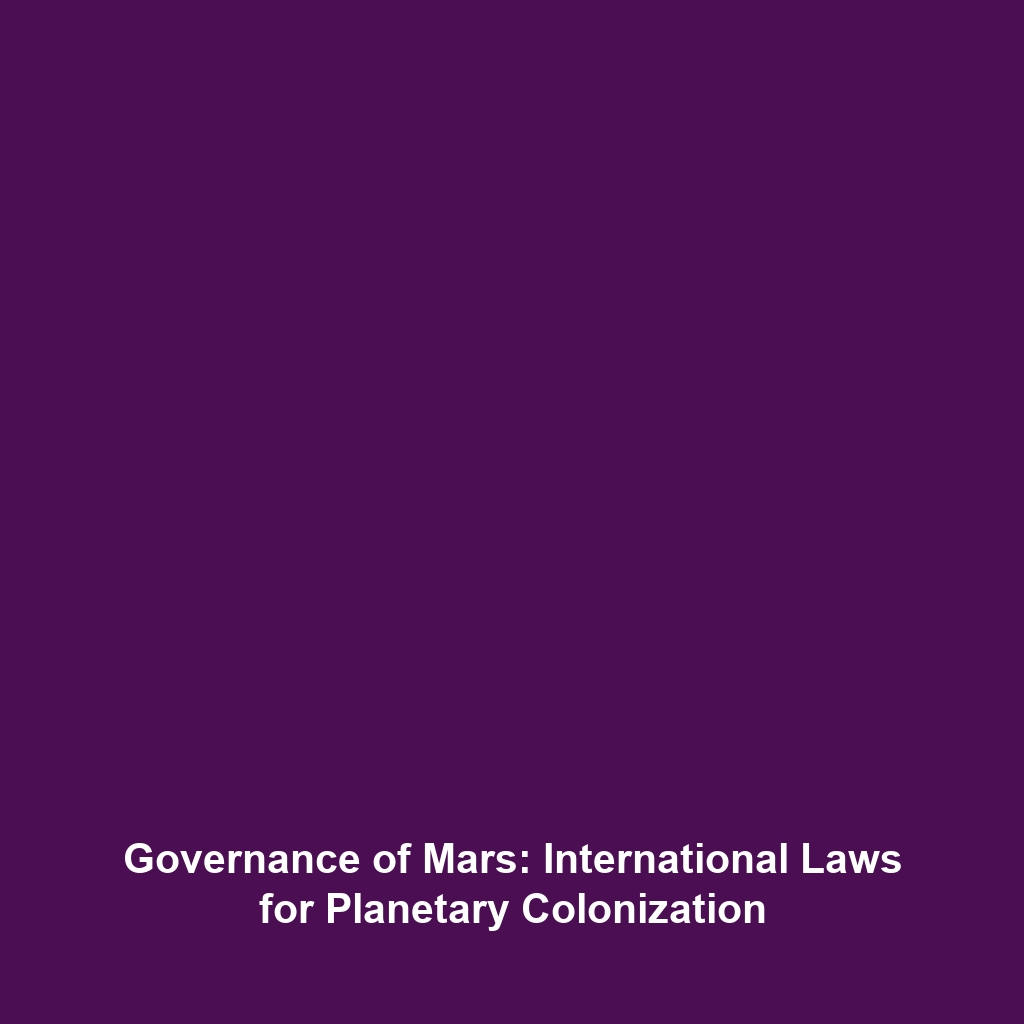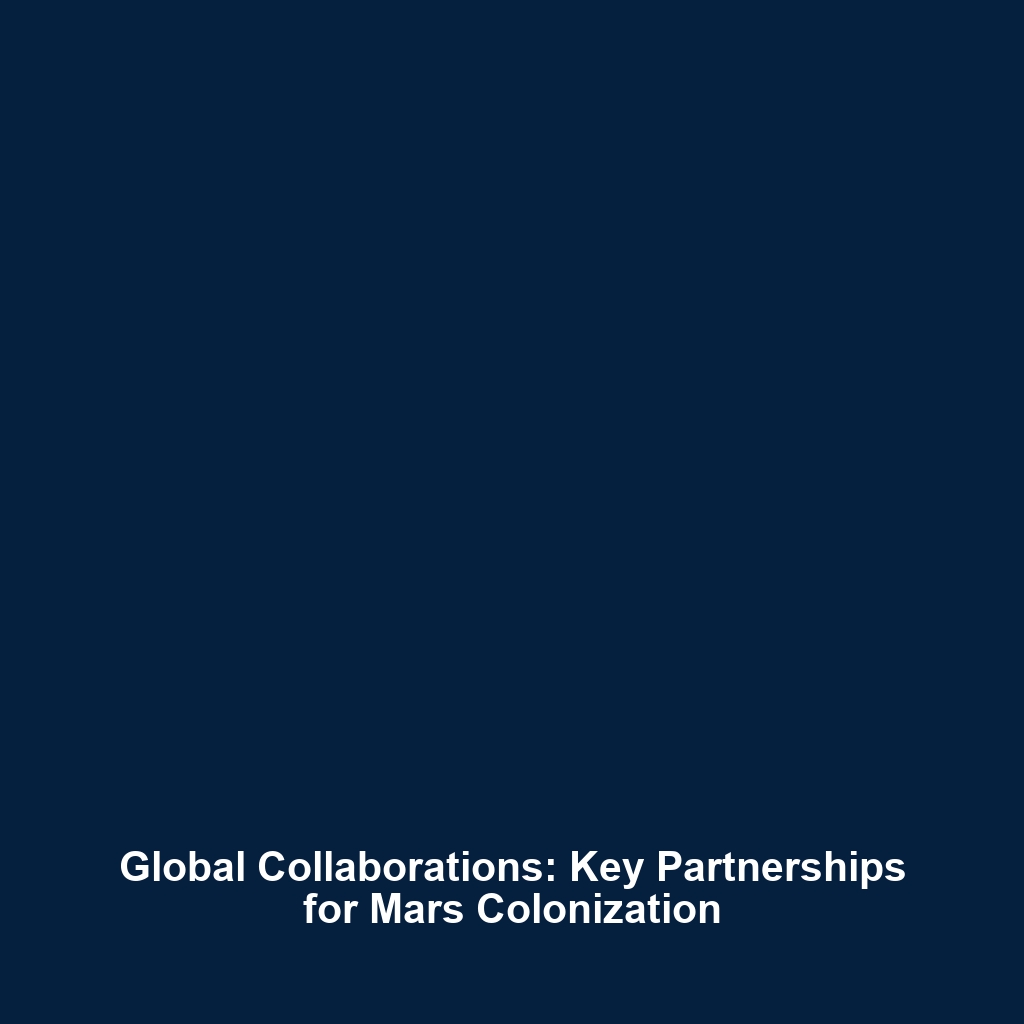Ownership and Governance of Mars: International Treaties and Policies Governing Planetary Colonization
Introduction: The prospect of colonizing Mars has captivated humanity for generations, bringing forth critical questions about the ownership and governance of Mars. With planning for human missions intensifying, the need for clear international treaties and policies governing planetary colonization has never been more significant. Understanding the legal frameworks that will guide human activity on Mars is essential not only for preventing conflicts but also for ensuring sustainable exploration and habitation of the Red Planet. This article delves into the pivotal international agreements that shape the framework of Mars ownership and governance as humanity prepares for colonizing Mars.
Key Concepts
Several foundational concepts underpin the ownership and governance of Mars, each crucial for a successful transition into the age of colonizing Mars. Here are some of the major principles:
1. Outer Space Treaty (1967)
The cornerstone of international space law, the Outer Space Treaty prohibits any nation from claiming sovereignty over celestial bodies, including Mars. This principle emphasizes the freedom of exploration and the responsibility of nations to avoid harmful contamination.
2. The Moon Agreement (1984)
Although not widely ratified, the Moon Agreement suggests that the Moon and other celestial bodies are the common heritage of mankind, advocating for equitable sharing of benefits derived from their exploration. This principle could guide future discussions on Martian governance.
3. Planetary Protection Policies
These policies aim to protect Martian ecosystems from contamination by Earth organisms. They highlight the ethics of exploration and the need for sustainable practices as humans prepare to establish a presence on Mars.
Applications and Real-World Uses
The principles surrounding ownership and governance of Mars have pertinent applications as we strategize for successful colonization of Mars. Here are several ways these concepts currently apply:
- Establishing collaborative agreements among spacefaring nations and private entities for joint missions and resource sharing.
- Implementing scientific research protocols to ensure planetary protection and preventing contamination during exploration.
- Developing frameworks to address resource utilization, such as water and minerals, while adhering to international laws and ethics.
Current Challenges
As we venture into the complexities of forgoing terrestrial governance in favor of extraterrestrial jurisdiction, numerous challenges arise:
- Challenges of Ownership: Ambiguities in ownership rights of resources on Mars may lead to future disputes among nations and corporations.
- Issues in Governance: The lack of enforceable international laws governing Mars and the absence of a universally accepted governance model complicate operational protocols.
- Public and Private Sector Collaboration: Aligning interests between government missions and private space enterprises poses hurdles in governance and ethical practices.
Future Research and Innovations
Innovations in space exploration technologies and governance frameworks are crucial as humanity prepares to undertake missions to Mars:
- Development of artificial intelligence systems for managing autonomous habitats on Mars, which may lead to innovative governance solutions.
- Research on sustainable life support systems, which could influence future treaties focusing on resource management and fair utilization.
- Emerging frameworks for multi-national collaborations could lead to dynamic, adaptable policies that evolve with advancing technologies and exploration realities.
Conclusion
In summary, the ownership and governance of Mars is a critical aspect influencing the future of colonizing Mars. By understanding international treaties and policies, we can foster a cooperative and ethical approach to Martian colonization. As we stand on the brink of this new frontier, it’s vital for all stakeholders to engage in dialogues that inform and refine our governance structures. For further insights into space law or Mars exploration strategies, visit our dedicated sections on these topics.
Learn more about space law | Explore Mars exploration strategies

